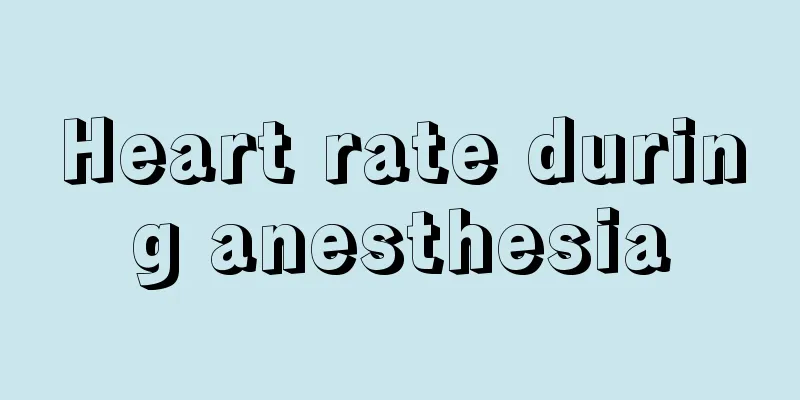Heart rate during anesthesia

|
Everyone's heart rate is different, so it is necessary for everyone to understand the issue of heart rate, so as to ensure the maintenance of our heart. Some people will have a low heart rate during anesthesia. In this case, we must pay attention to choosing the appropriate method of treatment and cooperate with some coping measures. Anesthesia for Arrhythmias The incidence of arrhythmias during perioperative cardiac and non-cardiac surgery is high, but the incidence of adverse consequences is not high. Anesthesiologists should be able to identify changes in the electrocardiogram, such as heart rate, heart rhythm, number of P waves in the QRS wave, and QRS wave shape, while explaining the causes of arrhythmias, understanding their severity and correct medication treatment, in order to reduce perioperative complications and mortality. Arrhythmia refers to abnormalities in the frequency, rhythm, origin, conduction velocity or activation order of cardiac impulses. Sinus arrhythmias include sinus tachycardia, sinus bradycardia, sinus arrhythmia, and sinus arrest. Ectopic rhythms include escape rhythm, premature beats, paroxysmal tachycardia, atrial flutter, atrial fibrillation, ventricular flutter, and ventricular fibrillation. Arrhythmias caused by abnormal impulse transmission include sinoatrial block, intra-atrial block, atrioventricular block, left or right bundle branch block, intraventricular block, and predicted syndrome. Factors that induce and aggravate arrhythmias during the perioperative period: 1. Stress response and the role of catecholamines. Anesthesia and surgical stimulation can cause systemic stress, which is manifested as increased release of catecholamines from sympathetic nerves and reduced clearance, leading to increased catecholamine concentrations in the blood, thereby increasing the autonomy, irritability and conductivity of the heart rhythm, and inducing and aggravating arrhythmias. Catecholamines used during anesthesia and surgery can also induce and aggravate arrhythmias. 2 Hemodynamic changes: Drastic changes in hemodynamics during anesthesia and surgery are an important cause of arrhythmias. A sharp increase in blood pressure can cause bradycardia due to the pressor nerve reflex; prolonged hypotension can cause myocardial hypoxia, induce an increase in catecholamines, and produce metabolic acidosis, leading to various arrhythmias. 3.CO2 accumulation and hypoxemia. Improper anesthesia often leads to CO2 accumulation and hypoxemia. Whether they occur simultaneously or alone, they can directly cause damage to the myocardium and induce arrhythmias. They can also cause arrhythmias indirectly, such as by disrupting the acid-base balance of the internal environment, increasing the level of catecholamines in the body, disturbing the electrolyte balance, or by stimulating the autonomic nervous system. |
Recommend
How long can passion fruit be preserved after being dug out
Many of the foods we eat on a daily basis are pro...
What are the key points in nursing for small cell lung cancer
What are the key points of nursing for small cell...
How is brain cancer diagnosed
In recent years, brain cancer has become one of t...
6 common causes of liver cancer
Liver cancer is the third most common malignant t...
Watermelon scrub facial cleanser
Normally, people wash their faces with warm water...
The difference between mature and immature people
There is always a stage when people are immature....
Surgical treatment of early gastric cancer
Surgical treatment of early gastric cancer includ...
What side effects will the Di'ao Xinxuekang produce?
The importance of the heart is self-evident. If c...
How to make berry tea taste good
Berry tea has many health benefits, but you must ...
The effect of magnetism on the human body
Every substance has its function, and many substa...
Will the transplant implant on the fourth day?
There are many things to pay attention to when do...
How effective is the big belly slimming tea
A big belly will directly affect our entire body ...
What are the characteristics of menstruation in patients with cervical cancer
Some people always have vaginal bleeding after me...
What are the hazards of silkworm sand pillow
In modern society, people’s daily household items...
Experts introduce tips for health care after uterine cancer surgery
Uterine cancer is a common uterine disease in wom...









